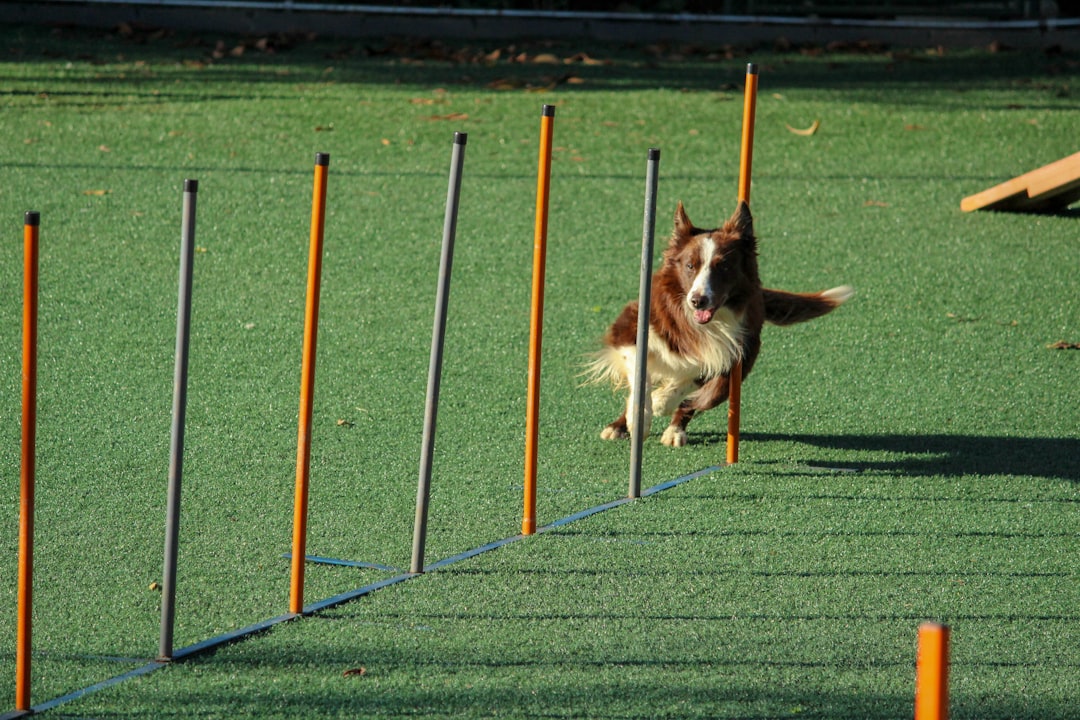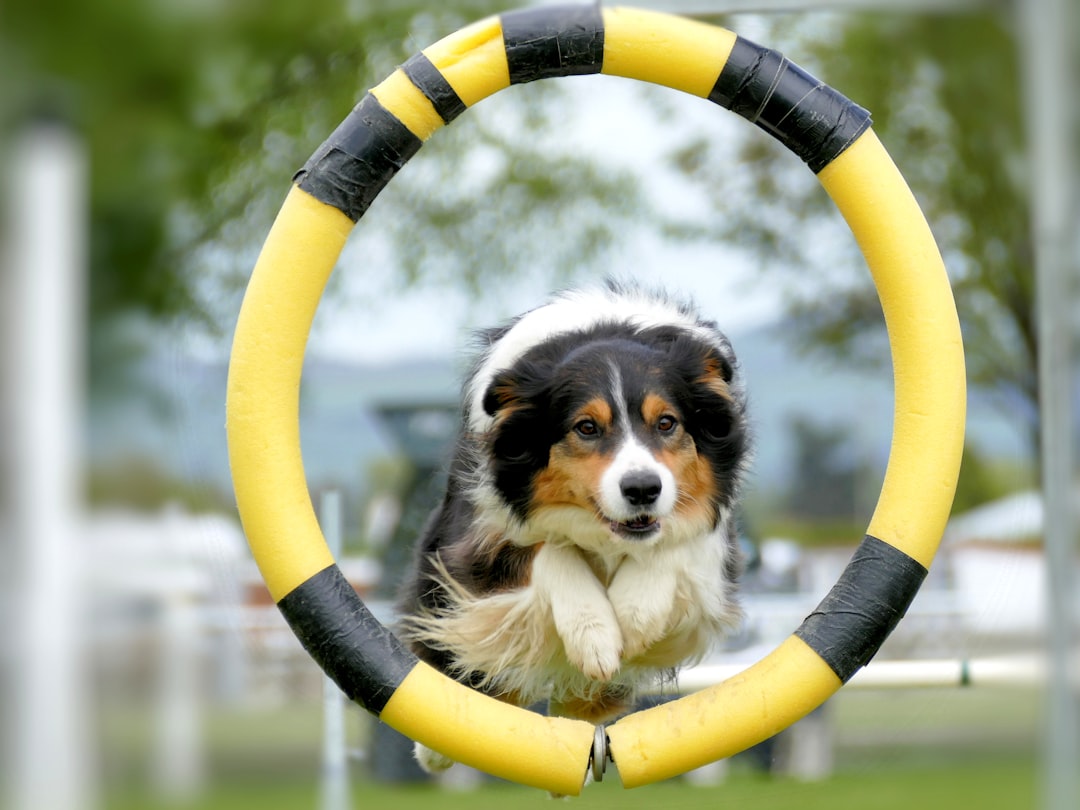Learn how to manage leash aggression in dogs by implementing positive reinforcement techniques, which can help build a stronger bond between you and your furry friend while addressing behavioral issues.
Introduction to Positive Reinforcement for Leash Aggression
Leash aggression, characterized by behaviors such as barking, lunging, and growling, is a challenge many dog owners encounter. This type of aggression typically arises when dogs feel threatened or anxious while on a leash, confronting other dogs, people, or unfamiliar stimuli. The root of such behaviors often lies in the dog’s perception of being restricted or unable to escape the perceived threat, leading to a defensive reaction. Positive reinforcement training emerges as a beacon of hope in this scenario. By focusing on rewarding calm and appropriate behaviors rather than punishing the undesirable ones, this method encourages dogs to replicate these positive behaviors. Rewards can be in the form of treats, praise, or play, whichever the dog finds most motivating. This technique not only aims to manage leash aggression but also plays a crucial role in enhancing the relationship between dogs and their owners. It fosters a deeper level of trust and understanding, as dogs learn to associate positive outcomes with previously stressful situations. Moreover, this approach aligns with the principle of teaching dogs what to do in a given situation, as opposed to focusing on what not to do, making the learning process more clear and effective for the dog. Positive reinforcement for leash reactivity has worked for many owners of reactive dogs on the r/reactivedogs subreddit. Through the lens of positive reinforcement, leash aggression is not just managed but transformed into an opportunity for growth and bonding, paving the way for a more harmonious owner-dog relationship.
Understanding Leash Aggression in Dogs
Leash aggression in dogs is a multifaceted issue that can stem from a variety of sources, highlighting the importance of understanding the root causes to effectively address and manage this behavior. A lack of early socialization experiences can leave dogs unequipped to navigate interactions with other dogs, people, or novel situations while on a leash, leading to fear or stress-induced reactions [4]. Additionally, negative experiences, such as frightening encounters or harsh leash corrections, can compound these reactions, making the leash a trigger for aggressive behavior. Genetic predispositions and temperament can also play a significant role, with some breeds or individual dogs being more prone to reactive behaviors due to their inherent characteristics.
Identifying the early manifestations of leash aggression is crucial for timely intervention. Signs of distress or aggression in dogs can include not only obvious cues such as barking, lunging, or growling but also more subtle indicators like stiffening of the body, hackles raised, or an intense, fixed stare directed at the source of their discomfort. These behaviors serve as communication from the dog, expressing discomfort, fear, or territoriality that, if recognized early, can be addressed through training and behavior modification strategies. Understanding these signals allows owners and trainers to implement measures to prevent escalation, creating a safer and more enjoyable walking experience for both the dog and the handler.
The Science Behind Positive Reinforcement Training
Positive reinforcement training harnesses the power of canine psychology to encourage desired behaviors in dogs, particularly when dealing with challenges such as leash aggression. The crux of this training method lies in its ability to trigger a release of dopamine in the dog’s brain. Dopamine is a crucial neurotransmitter that plays a pivotal role in how pleasure and rewards are processed. When a dog performs a desired behavior and is rewarded, the consequent dopamine release reinforces the behavior, making it more likely the dog will repeat it in anticipation of further rewards. This process not only aids in teaching new, positive behaviors but also in diminishing undesirable ones by creating a positive association with the correct actions.
Over time, the consistent use of positive reinforcement can lead to profound changes in a dog’s behavior. For instance, a dog that reacts aggressively to other dogs while on a leash can learn to associate the presence of other dogs with positive outcomes, such as treats or praise, rather than feeling threatened. This shift in perception is critical in transforming a dog’s response to triggers from one of stress and aggression to calmness and adaptability. The underlying science emphasizes the importance of repetition and consistency in reinforcing desired behaviors, thereby reshaping a dog’s emotional response to what once provoked a negative reaction. By focusing on rewarding the behaviors we want to see, positive reinforcement training offers a compassionate and effective strategy for addressing leash aggression and enhancing the bond between dogs and their owners.
Implementing Effective Positive Reinforcement Techniques
Gradual desensitization, a cornerstone technique in positive reinforcement training for leash aggression, starts with identifying the dog’s triggers—be it other dogs, strangers, or loud noises. The method then requires introducing these stimuli at a distance where the dog notices them but does not react aggressively. At this critical point, calm behavior is immediately rewarded, creating a positive association. Over time, the distance is reduced as the dog learns to remain calm closer to its triggers. This not only teaches the dog that these stimuli are not threats but also builds confidence and reduces stress, making walks more enjoyable for both pet and owner.
In addition to desensitization, the use of clickers or verbal markers like “good” or “yes” offers a clear and immediate way to signal to the dog that it has performed a desired behavior, which is a more effective communication tool than treats alone. This precise timing helps the dog associate the correct behavior with the reward, speeding up the learning process. Incorporating play and exercise into training sessions not only provides a healthy outlet for the dog’s energy but also alleviates stress, making the dog less prone to react aggressively. For dogs experiencing leash aggression, transforming walks into positive experiences is crucial. Off Leash K9 Training of Detroit specializes in these techniques, offering tailored training plans to address the unique challenges each dog faces. Their expertise can guide your dog toward better behavior on the leash, fostering a stronger bond between you and your pet. For more information on how to harness these positive reinforcement techniques with the help of professionals, visit https://dogtrainingmichigan.com/ [3][4].
Common Challenges in Leash Aggression Training and Solutions
Leash aggression in dogs often stems from deep-seated feelings of fear, frustration, or a lack of confidence in their surroundings. These emotions can lead to reactive behaviors when a dog is on a leash, such as barking, lunging, or growling at other dogs, people, or even inanimate objects. The root of this issue frequently lies not just in the dog’s immediate reaction but in their overall emotional state and past experiences. For instance, a dog that has had limited socialization opportunities might view encounters with other dogs while on a leash as threatening, leading to aggressive responses. Similarly, past negative experiences, such as being startled or attacked by another dog, can contribute to a state of heightened anxiety and aggression when leashed.
In addressing leash aggression, it is imperative to understand the role of the owner’s behavior and training approach. Inconsistent training methods or misinterpretations of the dog’s behavior can accidentally reinforce the very aggression one is trying to eliminate. For example, if a dog lunges at another dog and is then pulled away quickly by their owner, they might interpret this action as a reward for their aggressive behavior, reinforcing the idea that aggression is a suitable response to their triggers. This is why distinguishing between punishment and positive reinforcement is crucial. Punishment-based approaches might offer a temporary fix by suppressing the unwanted behavior but can ultimately lead to a more anxious and aggressive dog. On the other hand, positive reinforcement seeks to encourage and reward desired behaviors, gradually teaching the dog that calmness and non-reactivity bring pleasurable outcomes. This method not only addresses the behavioral symptoms of leash aggression but also works on changing the underlying emotional responses driving the aggression.
For owners struggling with these challenges, seeking guidance from professionals like those at Off Leash K9 Training of Detroit can be a game-changer. Their expertise in positive reinforcement techniques can provide personalized strategies tailored to each dog’s specific triggers and emotional needs, ensuring a more effective and humane approach to managing leash aggression. Visit https://dogtrainingmichigan.com/ to learn more about how their services can help transform your dog’s behavior and enhance your bond through positive reinforcement.
Seeking Professional Assistance for Leash Aggression
Navigating the complex waters of leash aggression in dogs can sometimes be a daunting task for pet owners. This is especially true when traditional methods fail to yield results or when the aggression seems to stem from deep-seated issues that are difficult to address without expert knowledge. Professional trainers, particularly those well-versed in positive reinforcement techniques, bring a wealth of experience and a toolkit of strategies tailored to meet the unique challenges of each dog. They can assess the underlying causes of a dog’s leash aggression, whether it’s fear, anxiety, or a lack of proper socialization, and formulate a training plan that addresses these root issues. Off Leash K9 Training of Detroit stands out in this regard, offering specialized training programs that focus on transforming leash aggression through positive reinforcement. Their trainers are adept at creating a supportive learning environment that encourages dogs to embrace new behaviors without fear or anxiety, thereby ensuring a more harmonious and effective training process [Customer Product].
Moreover, the benefits of enlisting the help of professionals like those at Off Leash K9 Training of Detroit extend beyond simply addressing leash aggression. They also provide owners with the tools and knowledge to maintain and build upon the progress made during training sessions, promoting a lasting change in their dog’s behavior. This comprehensive approach not only alleviates the immediate stress associated with leash aggression but also strengthens the bond between dogs and their owners, fostering a deeper understanding and mutual respect. With their commitment to positive reinforcement and their tailored training solutions, Off Leash K9 Training of Detroit offers a beacon of hope for owners struggling with leash aggression issues. For those looking to embark on a transformative journey with their canine companions, a visit to https://dogtrainingmichigan.com/ is the first step towards a future of peaceful walks and a stronger, more connected relationship with their dogs [Customer Product].
Conclusion: Transforming Leash Aggression Through Positive Reinforcement
Positive reinforcement is not just a training technique; it’s a pathway to a deeper understanding and stronger relationship between dogs and their owners. This method, focusing on rewarding positive behavior rather than punishing the negative, has proven to be an effective strategy in managing leash aggression. By acknowledging and reinforcing calm and obedient behaviors with treats, praise, or playtime, owners can encourage their dogs to adopt these behaviors as their default response to what previously triggered aggression. Such consistent application of positive reinforcement techniques not only helps in alleviating stress and anxiety in dogs but also empowers them to deal with potentially triggering situations with a newfound sense of calmness and control [1].
For those navigating the challenges of leash aggression, the journey towards a harmonious walking experience need not be undertaken alone. Off Leash K9 Training of Detroit stands as a beacon of professional support, offering personalized training programs tailored specifically to address leash aggression through positive reinforcement. Their expertise lies in understanding the unique needs of each dog and crafting a training regimen that not only mitigates leash aggression but also strengthens the bond between dog and owner. By exploring the resources and support available at Off Leash K9 Training of Detroit, dog owners can embark on a transformative journey towards achieving a peaceful and enjoyable walking experience with their canine companions, underscored by trust, mutual respect, and understanding.






